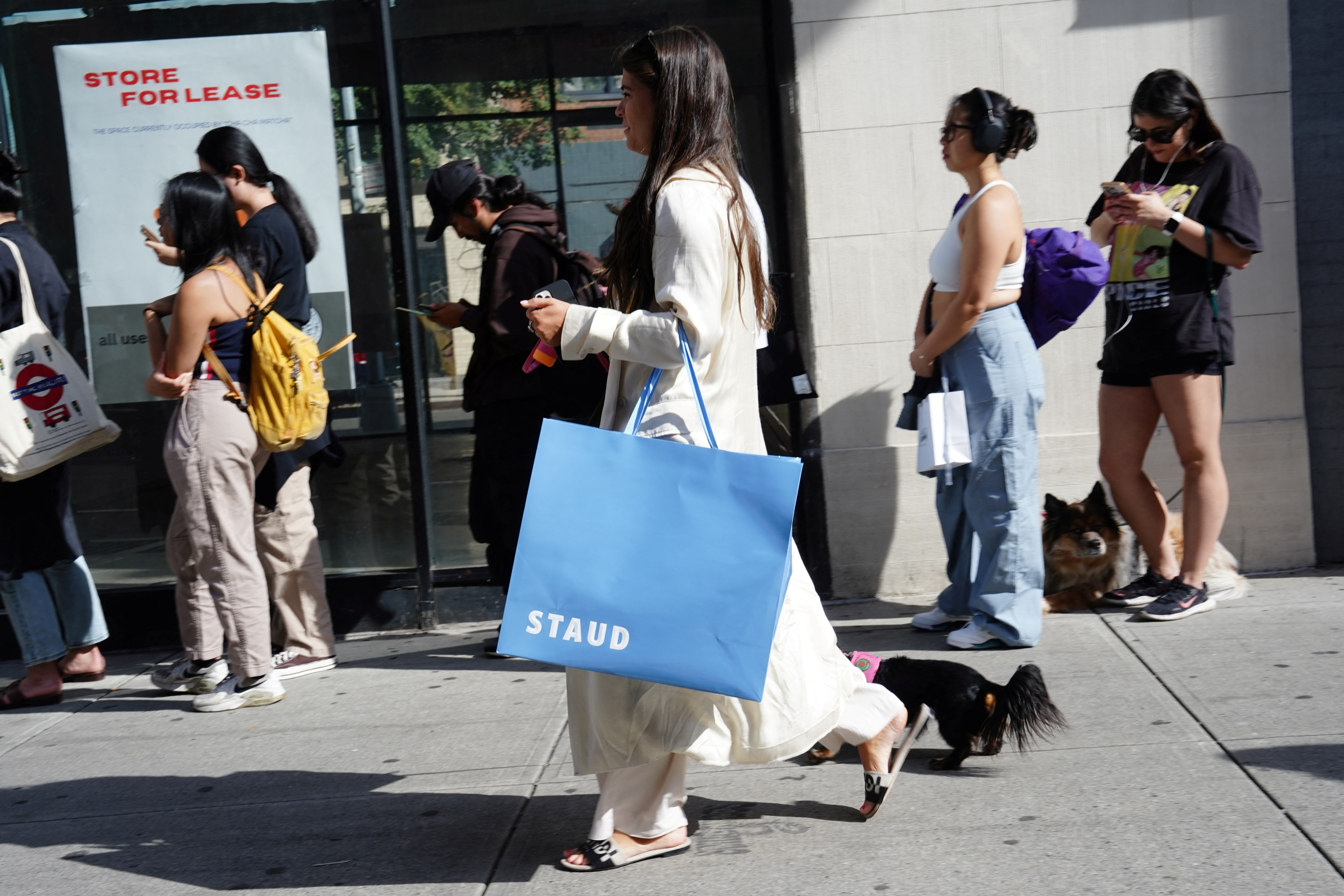A woman carrying a shopping bag from Staud walks past people queuing for a pop-up shop in the SoHo neighborhood of New York City, U.S., September 21, 2023. REUTERS/Bing Guan Acquire Licensing Rights
WASHINGTON, Sept 29 (Reuters) – Underlying U.S. inflation pressures moderated in August, with the annual rise in prices excluding food and energy falling below 4.0% for the first time in more than two years, welcome news for the Federal Reserve as it ponders the monetary policy outlook.
But the battle against inflation is far from being won as the report from Commerce Department on Friday showed overall prices remaining elevated, partly because of higher gasoline prices. Still, slowing underlying inflation raised hopes that the U.S. central bank will not raise interest rates in November.
“We continue to expect a slower pace of growth going forward and a further easing in price pressures, which should keep the FOMC (Federal Open Market Committee) on the sidelines for the rest of 2023,” said Rubeela Farooqi, chief U.S. economist at High Frequency Economics in White Plains, New York.
The personal consumption expenditures (PCE) price index, excluding the volatile food and energy components, gained 0.1%. That followed a 0.2% advance in July. Economists polled by Reuters had forecast the core PCE price index would climb 0.2%.
In the 12 months through August, the so-called core PCE price index increased 3.9%. It was the first time since June 2021 that the annual core PCE price index was below 4.0%.
The core PCE price index rose 4.3% in July.
With the August data, the government introduced new price measures, the PCE price index excluding food, energy and housing, and PCE services excluding energy and housing, the so-called super core inflation.
The PCE price index excluding food, energy and housing also gained 0.1% last month after rising 0.2% in July. PCE services excluding energy and housing inflation rose 0.1% after climbing 0.5% in the prior month.
Gasoline prices accelerated in August, peaking at $3.984 per gallon in the third week of the month, the highest this year, according to data from the U.S. Energy Information Administration. That compared to $3.676 per gallon during the same period in July.
Rising gasoline prices contributed to lifting the overall PCE price index 0.4% in August after a rise of 0.2% in July. In the 12 months through August, the PCE price index advanced 3.5% after gaining 3.4% in July. The U.S. central bank tracks the PCE price indexes for its 2% inflation target.
Policymakers are focused on the super core price measure as they try to gauge progress in their fight against inflation.
U.S. stocks opened higher. The dollar fell against a basket of currencies. U.S. Treasury prices rose.
CONSUMER SPENDING
The Fed held interest rates steady last week but stiffened a hawkish monetary policy stance. Since March 2022, the central bank has raised its policy rate by 525 basis points to the current 5.25%-5.50% range. Financial markets currently expect the Fed will keep rates unchanged at its Oct. 31-Nov. 1 policy meeting, according to CME Group’s FedWatch tool.
The surge in gasoline prices helped to support consumer spending last month, which gained 0.4%. Data for July was revised higher to show consumer spending, which accounts for more than two-thirds of U.S. economic activity, increasing 0.9% instead of the previously reported 0.8%.
When adjusted for inflation, spending edged up 0.1% after shooting up 0.6% in July. Economists expect consumer spending to have regained speed in the third quarter after slowing in the April-June period.
Estimates of gross domestic product growth for the third quarter are currently as high as a 4.9% annualized rate. The economy grew at a 2.1% pace in the second quarter.
Reporting by Lucia Mutikani; Editing by Paul Simao
Our Standards: The Thomson Reuters Trust Principles.
Credit: Source link




